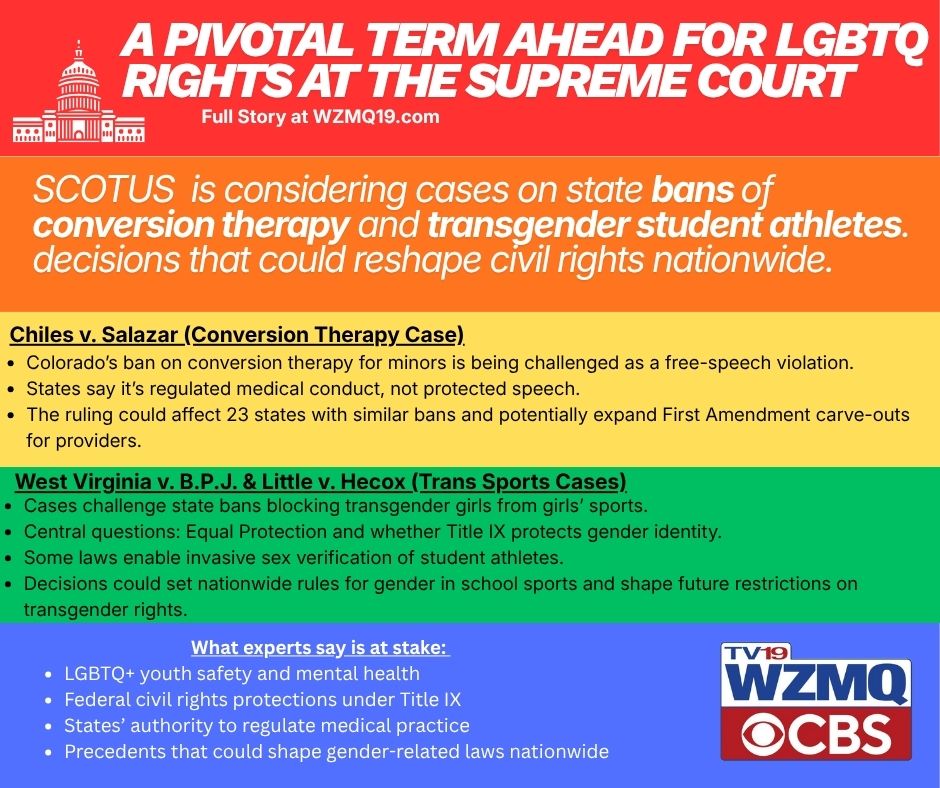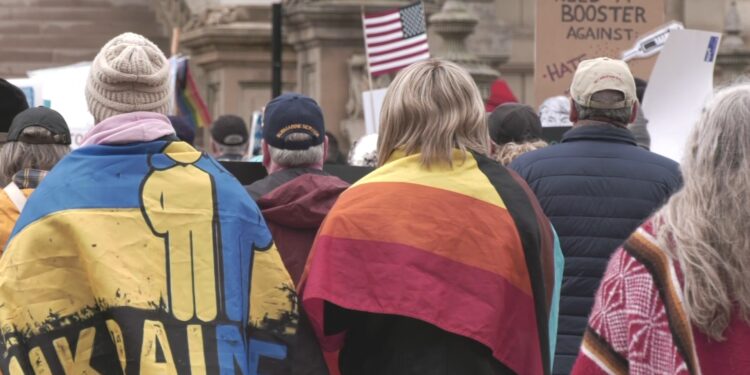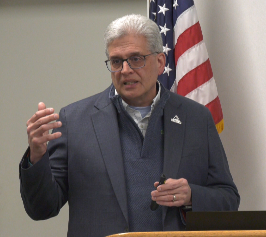LANSING, Mich. (WZMQ) – The U.S. Supreme Court is preparing to hear two cases that legal scholars say could become landmark rulings for LGBTQ+ rights. The first is on transgender participation in school sports, and another is testing whether states can ban conversion therapy for minors.

Heather Johnson, Adjunct Professor at Michigan State University and Director of the Gender and Sexuality Moot Court program, who researches constitutional law and LGBTQ+ policy, said the consequences extend far beyond schools and counseling sessions.
“These cases give the Court two major opportunities to redefine what equal protection means for transgender people,” Johnson said. “And depending on how broadly the justices write their opinions, these cases could shape civil rights law for an entire generation.”
Chiles v. Salazar: Is Conversion Therapy “Speech” or “Conduct”?
In Chiles v. Salazar, a Colorado therapist backed by the conservative legal group Alliance Defending Freedom argues that the state’s ban on conversion therapy for minors violates her First Amendment rights.
Colorado is one of 23 states that prohibit licensed counselors from attempting to change a child’s sexual orientation or gender identity, a practice rejected by every major U.S. medical association.
Johnson said the case could determine whether states retain the authority to regulate harmful therapeutic practices.
“One of the major questions the Court must answer is whether the state is regulating conduct or censoring speech,” Johnson said. “The Court could rule quite narrowly, or it could say therapy conversations are speech that the government can’t regulate, which would dramatically limit states’ ability to ban conversion practices.”
Health Care Providers have warned that weakening such bans could expose LGBTQ+ youth to practices linked to increased depression, anxiety, and suicide risk.
West Virginia v. B.P.J. & Little v. Hecox: Who Can Play School Sports?
The other pair of cases, West Virginia v. B.P.J. and Little v. Hecox, will determine whether states can keep transgender girls from joining girls’ sports teams.
Federal judges blocked both bans, but Johnson said the Supreme Court could reverse that.
“In the sports cases, the Court isn’t just deciding who can play,” Johnson said. “They’re deciding whether discrimination based on transgender status counts as sex discrimination under the Equal Protection Clause.”
The stakes are high, with some even suggesting required sex confirmation, a practice deemed invasive. Johnson said the Court could issue a sweeping, nationwide rule, or leave states free to enact conflicting policies.
“If the Court said states can define sex however they want, you’ll see even more bans, even more restrictions, and even more challenges to Title IX protections,” she said.
Potential Long-Term Impacts
Johnson said both cases arrive at a time when the Court’s conservative majority has shown a willingness to revisit decades-old legal precedents involving reproductive rights, civil rights, and administrative authority.
“The Court is signaling it’s ready to fundamentally rethink LGBTQ+ protections,” Johnson said. “So we’re watching not just individual rulings, but a larger shift in how the Court sees equality, bodily autonomy, and the role of the state.”
The Court heard oral arguments in Chiles v. Salazar on October 7; briefing deadlines for the sports cases run through mid-November. Decisions can be expected before spring 2026.










